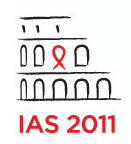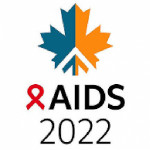 Neither HIV infection nor its treatment appears to be associated with hearing loss, according to data from two large U.S. cohort studies reported Tuesday, July 19, at the 6th IAS Conference on HIV Pathogenesis, Treatment and Prevention in Rome. According to the presenting researchers, the only factors that contributed to hearing loss among people living with HIV were gender, age and race.
Neither HIV infection nor its treatment appears to be associated with hearing loss, according to data from two large U.S. cohort studies reported Tuesday, July 19, at the 6th IAS Conference on HIV Pathogenesis, Treatment and Prevention in Rome. According to the presenting researchers, the only factors that contributed to hearing loss among people living with HIV were gender, age and race.
Hearing loss is not uncommon among people living with HIV—notably the sensorineural loss of hearing typically associated with aging. Whether it is more common among people living with the virus isn’t clear, given that reports of hearing loss in the setting of HIV have been scattered and unconfirmed.
Even less is known about the possible causes of hearing loss in HIV-positive people—it could be related to the disease itself, including the accelerated aging that has been documented in people living with HIV, or it might be related to the antiretrovirals (ARVs) used to treat the infection. Then again, it may not be any more common among people living with HIV and simply an indirect consequence of usual hearing loss risk factors: genetics, aging and chronic exposure to loud noise.
Studies looking into the frequency and potential causes of hearing loss have gotten under way during the past few years, including a five-year analysis being conducted at the University of Rochester in New York. Researchers associated with the U.S. men’s Multicenter AIDS Cohort Study (MACS) and Women’s Interagency HIV Study (WIHS) have also conducted an evaluation, testing otoacoustic emissions (OAEs) in 334 men participating in the MACS and 178 women participating in the WIHS.
OAEs are sounds produced by the cochlea, the organ in the inner ear that stimulates the auditory nerve and allows the brain to interpret sound waves. If hearing is damaged—sensorineural hearing loss typically involves damage to the microscopic hair cells in the cochlea—OAEs will be hard to detect using a noninvasive distortion product otoacoustic emissions (DPOAE) test.
In the MACS, 152 HIV-positive and 182 HIV-negative men were asked about noise exposure levels and hearing loss symptoms and underwent DPOAE testing. A similar protocol was followed for the 137 HIV-positive and 41 HIV-negative women evaluated in the WIHS. None of the subjects had an obvious history of hearing loss, such as needing hearing aids for conditions that likely predated their HIV infection.
The vast majority of the HIV-positive individuals in both studies reported taking antiretroviral therapy.
According to study presenter Peter Torre, PhD, of San Diego State University, the MACS study participants averaged 54 years old and the WIHS study participants averaged 45 years old. An equal proportion of blacks and non-blacks were included in the study. About 22 percent in both groups reported occupational noise exposure, and nearly 60 percent reported regular exposure to noise such as loud music in nonoccupational settings.
Torre’s group reported the number of non-responses to DPOAE testing—with zero likely indicating no hearing loss and four indicating at least some hearing loss (based on two measurements in each ear).
Though statistical comparisons were not reported, there appeared to be less hearing loss among the HIV-positive study subjects compared with the HIV-negative subjects. Zero non-responses were documented in 30.5 percent of the HIV-positive individuals, compared with 18.4 percent of the HIV-negative individuals. Four non-responses were documented in 12.8 HIV-positive individuals, compared with 18.4 percent of the HIV-negative individuals.
Additional analyses suggested that HIV status, the use of ARV treatment, CD4 counts (either present or lowest-ever) and viral load were not associated with an increased risk of hearing loss among the people living with HIV in the studies. Poor cochlear function, demonstrated using DPOAE testing, was more likely to occur with every 10 years of increasing age, with those who were male and with those who were of non-Black race.
While additional research from other studies is needed to fully understand the relationship—or lack thereof—between HIV and hearing loss, Torre’s team noted that “this study represents the largest sample to examine the association of HIV infection on cochlear function.”






Comments
Comments